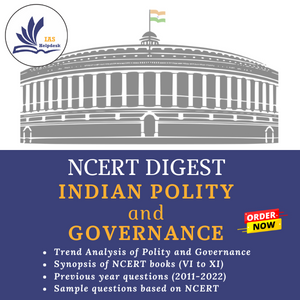Open Defecation Free (ODF) in India
Description
Description: This article delves into the Swachh Bharat Mission (Gramin) and its ambitious ODF Plus phase aimed at ensuring the continued use of toilets and effective management of solid and liquid waste. Discover the key interventions and challenges in transforming ODF villages into ODF Plus.
Open Defecation Free (ODF) status
Open Defecation Free (ODF) is the termination of faecal-oral transmission, defined by:
• No visible faeces found in the environment/village; and
• Every household as well as public/community institutions using safe technology option for disposal of faeces.
Swachh Bharat Mission (Gramin) has focused on achievement of open defecation free (ODF) villages.
More than 6 lakh villages declared themselves Open Defecation Free (ODF) by 2nd October, 2019. This was also the nation’s tribute to Mahatma Gandhi on his 150th birth anniversary. It also led to the achievement of Target 6.2 (Sanitation & Hygiene) of SDG 6, 11 years ahead of the stipulated timelines.
ODF Plus
Having achieved ODF status SBM-G Phase II was launched in 2020-21 with the objective of sustaining the ODF status and managing solid and liquid waste to bring about visual cleanliness by 2024-25 and transforming all the villages from ODF to ODF Plus. To achieve the goal of ODF Plus villages, focus is given to the following interventions under the programme:
• Providing access to toilets to left-out households and newly emerged households by construction of Individual Household Latrines (IHHLs) and Community Sanitary Complexes (CSCs).
• Biodegradable Waste Management through Composting and Biogas plants.
• Collection, segregation setting up systems for and storage, facilities and Plastic Waste Management Units/Material Recovery Centres for Plastic Waste Management.
• Construction of Soak pits, Waste Stabilization Ponds, DEWATS, etc. for Greywater Management.
• Faecal Sludge Management through co-treatment in existing Sewage Treatment Plants/Faecal Sludge Treatment Plants (STPs/FSTPs) in peri-urban areas and setting up of FSTPs under the programme.
• Decentralized operation and maintenance of community sanitation assets in rural areas by Gram Panchayats.
GoI has approved a total outlay of Rs. 1.40 lakh crores to facilitate the transformation of villages from ODF to ODF Plus. More than 3 lakh villages have become ODF Plus.
Challenges in achieving ODF Plus
Having achieved ODF status, the challenge now is to sustain the usage of toilets as well as make all the villages visibly clean by establishing systems to manage solid and liquid waste.
For SBM-G Phase II, both individuals and the communities have to work alongside the State machinery to achieve the goals. It needs behaviour change and requires communities to adopt the practices of source segregation, composting, channelling greywater into kitchen gardens or soak-pits and curbing the use of plastics, on a day-to-day basis.
The journey from ODF to ODF Plus requires the strengthening of capacities of field-level functionaries at District, Block and Gram Panchayat levels as also of front-line workers such as Swachhagrahis and Self-Help Groups (SHGs). They need to be trained and provided with technical know-how. Further, the objective calls for intensive IEC, BCC and IPC activities to generate awareness, and engage the community in Swachhata activities.
How to Prepare for IAS | FAQs on UPSC | Up to date Current Affairs | Latest Videos & Updates | Article:

